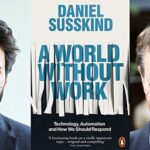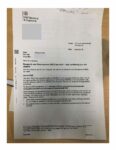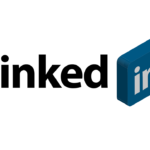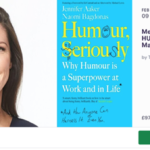We have brigaded the numerous takeaways under 3 main headings: The Context Daniel wrote A WORLD WITHOUT WORK: People need to take the threat seriously People need to understand that their contribution to society will change In 1950, machines could perform 100,000 (or 10⁵) computations per second; in 2000 that figure was 1,000,000,000,000. And technology […]
Continue reading134. In 3 – No. 7 Have you or your clients received a “NUDGE” letter from HMRC?
Context If you are claiming R&D tax relief, it’s important to understand the correspondence you might receive from HMRC and what to do next. Up to now, most applications for R&D relief result in money hitting your bank account, with little or no direct communication between you and HMRC. But times have changed. HMRC has […]
Continue reading133. In 3 – No. 6 Thoughts on how you could be easily maxing your LinkedIn activity
I have just completed a week of well, the only word for it is Bootcamp which forced me to re-evaluate how I use LinkedIn It soon became clear I had only really been dabbling at it. Yes, my profile was pretty up-to-date and yes, I was doing the odd post and ‘like’ and sharing other […]
Continue reading132. My takeaways from our exclusive interview with Gary Bloom, an Elite Sports Psychotherapist and author of “Keeping Your Head in the Game” on 9th March 2021
Every month we meet a top-drawer author and put them through their paces. This month it was the turn of Gary Bloom, an elite sports psychotherapist who works extensively with the business community (as well as high profile sportsmen). These are my takeaways from our one hour session with Gary. But the real value add […]
Continue reading131. My takeaways from our exclusive interview with Naomi Bagdonas, a Stanford School of Business Professor, executive coach, and co-author of “Humour, Seriously” on 9th February 2021
Every month we meet a top drawer author and put them through their paces. This month it was the turn of Naomi Bagdonas and below are my takeaways from our one hour session with her. Naomi presented brilliantly and with expert moderation from Blaire Palmer we got a whole load of anecdotes. But here’s the […]
Continue reading130. What is QE2 and do we really have to pay it back?
In our related article, “What is QE (1) and what happened in 2008?” we looked at what we now refer to as QE1. Here we are going to look at QE2 and identify how it is very different to QE1. In the 2019 election the Conservatives set aside £130Bn each year to fund the so […]
Continue reading129. Is this a Good Way to run our Economy?
In our earlier article “Can Banks really Create Money When they Want?” we looked at how we are part of a system where privatised bodies – i.e. the banks – are the main ones creating the money for our society. And we also came to the conclusion that money is all illusory. We learnt that […]
Continue reading128. Are there any Checks and Balances on the ability of Banks to Create Money?
Spoiler Alert: The short answer is: “No, not really. But it does depend largely on the confidence of bankers.” The traditional view of a banker is that of someone who takes money off a person who wants to save (a depositor). But banks soon realised that they did not need to keep all the depositor’s […]
Continue reading127. Can Banks really Create Money When they Want?
Why not read our earlier article What was QE (1) and what happened in 2008? which sets the scene nicely for this post. An equally relevant and related question is this: Is money illusory? We all use money every day in some form or […]
Continue reading126. What was QE (1) and what happened in 2008?
To understand what went on in 2008 it is useful to have some background about the UK financial system. In 1850, to avoid having a run on the bank (à la Northern Rock in 2008) banks tended to maintain a self-imposed 60% of eligible liabilities as liquid assets – this is called the liquidity reserve […]
Continue reading









